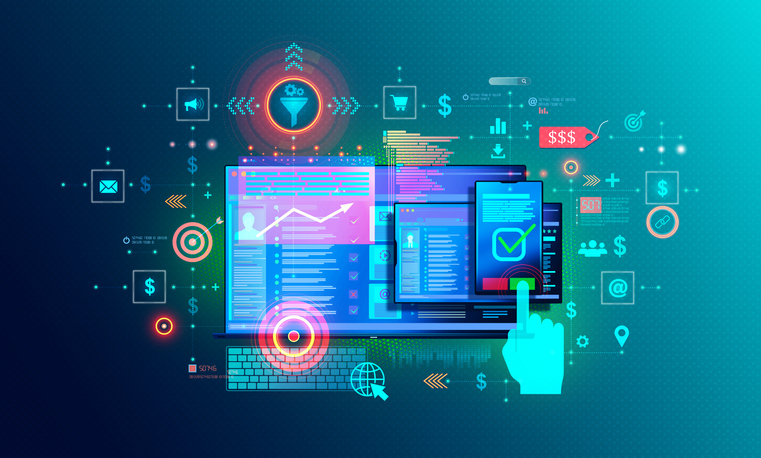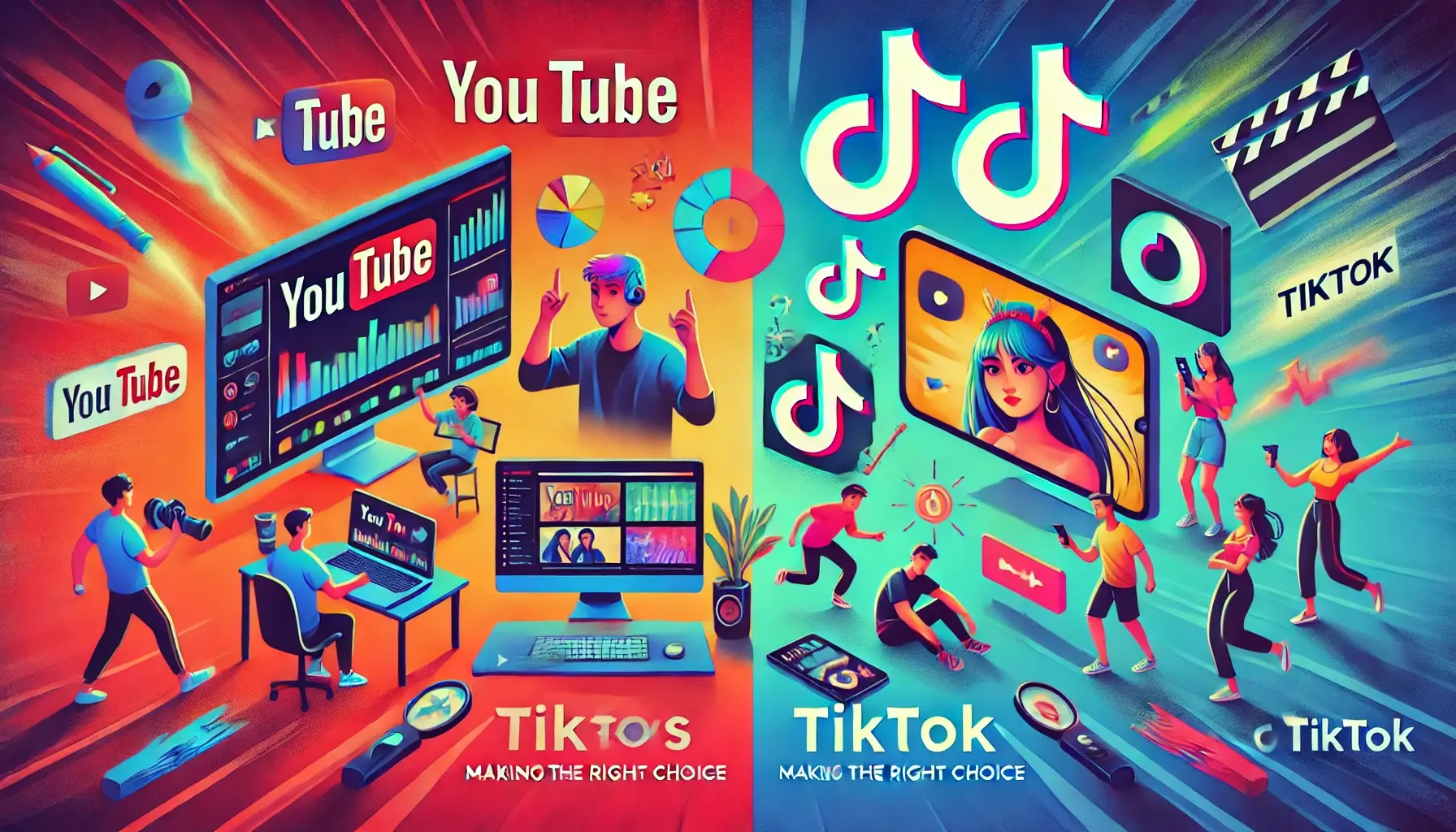3 min read
From Idea to Impact: Building Your Digital Content Arsenal
Have you ever stumbled upon a piece of digital content that stopped you in your tracks? In today’s fast-paced digital landscape, that’s the power of...
3 min read
![]() The Amazing Team at Focus Digital Marketing
:
Jun 5, 2024 9:56:07 AM
The Amazing Team at Focus Digital Marketing
:
Jun 5, 2024 9:56:07 AM
The Power of AI in Digital Marketing: Revolutionizing the Landscape in the USA
In today's era of digitalization, businesses must constantly explore new avenues to stay ahead in the market. Artificial Intelligence (AI) has quickly emerged as a game-changer in various industries, and digital marketing is no exception. The power of AI in digital marketing has transformed the landscape by providing better insights, enhancing customer experiences, and optimizing marketing strategies to drive business growth. In the USA, where technology adoption is at its peak, the relevance of AI in digital marketing cannot be understated.
Definition and Key Components of AI in Digital Marketing
AI is a branch of computer science that aims to create intelligent machines capable of simulating human behavior and undertaking tasks that would normally require human intelligence. In the realm of digital marketing, AI integrates advanced algorithms and data science techniques to analyze vast amounts of data, predict consumer behavior, and automate marketing processes. Key components of AI in digital marketing include machine learning, natural language processing, and predictive analytics.
Implementation Steps for Harnessing the Power of AI in Digital Marketing
To take advantage of AI in digital marketing, organizations need to follow a strategic implementation plan. The first step involves understanding business goals and identifying areas in digital marketing that can benefit from AI integration such as customer segmentation, content creation, and personalized advertising. Next, businesses should collect and aggregate relevant data that can fuel AI algorithms. This data can range from customer demographics and purchasing history to website analytics and social media interactions. Once data is collected, it needs to be cleansed and organized for AI algorithms to extract meaningful insights. Finally, companies should deploy AI-enabled tools and software that can leverage the collected data to automate marketing processes or provide actionable insights.
Benefits of AI in Digital Marketing
The power of AI in digital marketing brings a multitude of benefits to businesses. First and foremost, AI enables marketers to better understand their target audience by analyzing data patterns and predicting consumer behavior. This can inform strategies for personalized marketing campaigns and highly targeted advertisements, resulting in higher conversion rates and customer satisfaction. Additionally, AI can automate repetitive tasks, thereby allowing marketers to focus on higher-value activities. Customer service chatbots powered by AI can provide instant responses, ensuring round-the-clock support for customers. Moreover, AI-powered analytics can provide businesses with real-time insights into marketing campaign performance, enabling them to make data-driven decisions and optimize ROI.
Challenges of Implementing AI in Digital Marketing
While the power of AI in digital marketing is undeniable, businesses must also navigate certain challenges when implementing AI strategies. One key challenge is the need for high-quality data. Without accurate and reliable data, AI algorithms may produce inaccurate insights and predictions. Data privacy and security also pose a challenge, particularly in the USA, where regulations such as the California Consumer Privacy Act (CCPA) and the General Data Protection Regulation (GDPR) must be complied with. Furthermore, there may be a lack of technical expertise within marketing teams to effectively harness the power of AI.
Analytics Report and Case Studies
According to a report by MarketsandMarkets, the AI in digital marketing market in the USA is expected to grow at a CAGR of over 30% from 2021 to 2026. This exponential growth can be attributed to the numerous success stories across various industries. For instance, Coca-Cola, a global beverage giant, employed AI to analyze social sentiment and optimize its advertising campaigns, resulting in a 20% increase in click-through rates. Similarly, Netflix utilizes AI algorithms to recommend personalized content to its users, contributing to its success as a leader in the streaming industry.
Future Trends of AI in Digital Marketing
The power of AI in digital marketing is set to continue its dominance in the USA, with several emerging trends on the horizon. Voice search optimization is expected to gain prominence, as more users turn to smart speakers and voice assistants for their online searches. AI-powered virtual assistants are also likely to be integrated into marketing strategies, providing personalized recommendations and enhancing customer experiences. Furthermore, AI will play a vital role in influencer marketing, by identifying and connecting marketers with relevant influencers for authentic collaborations.
In conclusion, the power of AI in digital marketing has revolutionized the landscape in the USA. By leveraging advanced algorithms and analytics, businesses can harness the power of AI to drive marketing strategies, improve customer experiences, and achieve long-term growth. As technology continues to evolve, the inclusion of AI in digital marketing is no longer an option but a necessity for businesses seeking to stay competitive in this digital age.
FAQs:
1. What is AI in digital marketing?
AI in digital marketing refers to the usage of artificial intelligence algorithms and techniques to analyze data, predict customer behavior, and automate marketing processes for improved marketing strategies and customer experiences.
2. What are the key components of AI in digital marketing?
The key components of AI in digital marketing include machine learning, natural language processing, and predictive analytics.
3. How can AI be implemented in digital marketing?
To implement AI in digital marketing, businesses need to understand their goals, collect relevant data, cleanse and organize the data, and deploy AI-enabled tools and software for automation or insights.
4. What are the benefits of AI in digital marketing?
AI in digital marketing offers benefits such as improved understanding of the target audience, personalized marketing campaigns, automation of repetitive tasks, real-time analytics, and data-driven decision-making.
5. What are the challenges of implementing AI in digital marketing?
Challenges of implementing AI in digital marketing include the need for high-quality data, data privacy and security concerns, and a lack of technical expertise within marketing teams.

3 min read
Have you ever stumbled upon a piece of digital content that stopped you in your tracks? In today’s fast-paced digital landscape, that’s the power of...

3 min read
YouTube vs Tiktok – The Creator Dilemma: A Comprehensive Analysis of the Relevance in the USAIn recent years, the battle between YouTube and TikTok...

4 min read
In today's digital age, establishing a robust personal brand online is essential for professionals looking to stand out in their respective...